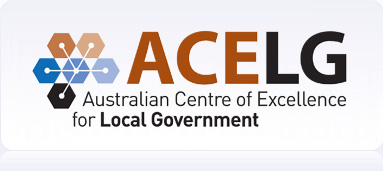Stronger Local Government Revenues

ACELG hosted a search conference on local government revenue and capacity in Melbourne on Friday 10th August. The conference was the start of a consultation and research process that will culminate in the release of Working Paper by early 2013.
Attendees discussed key themes such as the long term fiscal outlook for governments, responses to tax reform proposals such as the Henry Review, alternative streams of own-source revenue for local government, improvements to rating systems, and the potential for revenue sharing across the sector.
While the research was at beginning stages, it was agreed that a comprehensive range of measures would be required to address the issue of the ongoing strength of local government revenue.
The conference aimed to explore the findings of local government reviews, contextual research, and analyses of local governments’ financial performance and capacity. It also considered responses that may be warranted by all three spheres of government.
The event was facilitated by ACELG Director Graham Sansom and leading local government expert, John Comrie. Organisations represented included local government associations, local government finance professionals, plus councils, universities, consulting firms and individuals.
The project’s draft Working Paper had limited released for review on 30th November 2012. It has been developed as a companion piece to the Background Paper, which has been updated accordingly. These draw together available information and research to develop a sound evidence base and fresh ideas that can inform forums and discussion taking place in policy making circles around Australia about local government revenues and capacity. They will cover a wide range of issues concerning property tax and other sources of revenue. The research and papers coincide with work undertaken by the Independent Local Government Review Panel conducted by the NSW Government in the second half of 2012.
The Working Paper is due for release in early 2013.
The Background Paper by John Comrie is available here.
Contact John Lavarack, ACELG Research Officer, 02 9514 2595 or [email protected].
This project is an initiative of ACELG`s Research and Policy Foresight Program which aims to support evidence-based policy formulation, promote informed debate on key policy issues and help address major challenges facing local government.
 |
| Presenter: John McLaren, Faculty of Law, University of Canberra |
Further Detail
Over the past decade or so there has been considerable attention given to the state of Australian local governments’ finances, the capacity of local governments to fund reasonable and appropriate service levels, why local governments may have financial challenges and what if anything should be done about these matters.
There have been a significant number of comprehensive reports on these topics. Some have been commissioned by local government representative bodies at the state or national level and some have been initiated by the states and the Commonwealth. There has also been a major review of Australia’s overall systems of taxation.
A number of factors have spurred increased interest in local governments’ financial performance and capacity this century, including:
- Claims by the local government sector that communities and other spheres of government are expecting them to undertake a much broader range of responsibilities than historically has been the case and that their revenues have not kept pace with expenditure requirements;
- The demands and implications of demographic change. Many local governments in urban and coastal locations have experienced rapid rates of development and population growth resulting in additional infrastructure needs and service level pressures. At the same time many rural and regional communities have experienced population and/or income loss that has exacerbated the financial challenges of their local governments;
- Increasing recognition that local government assets are aging and concern that renewal expenditure is not occurring at the rate necessary to maintain service levels from existing assets. This follows changes in Australian Accounting Standards in the 1990’s and legislative requirements for local governments to follow such standards. These changes require governments to recognise infrastructure (eg roads, stormwater drains, buildings) as assets and depreciate them over their useful lives. These changes showed for the first time the total costs of service delivery by local governments inclusive of asset consumption; and
- Political agitation as a result of property price booms and local governments’ rating policies that creates volatility in rates payable by many ratepayers (although not necessarily commensurate increases in local government revenue).
Read on… Download the Background Paper here.



